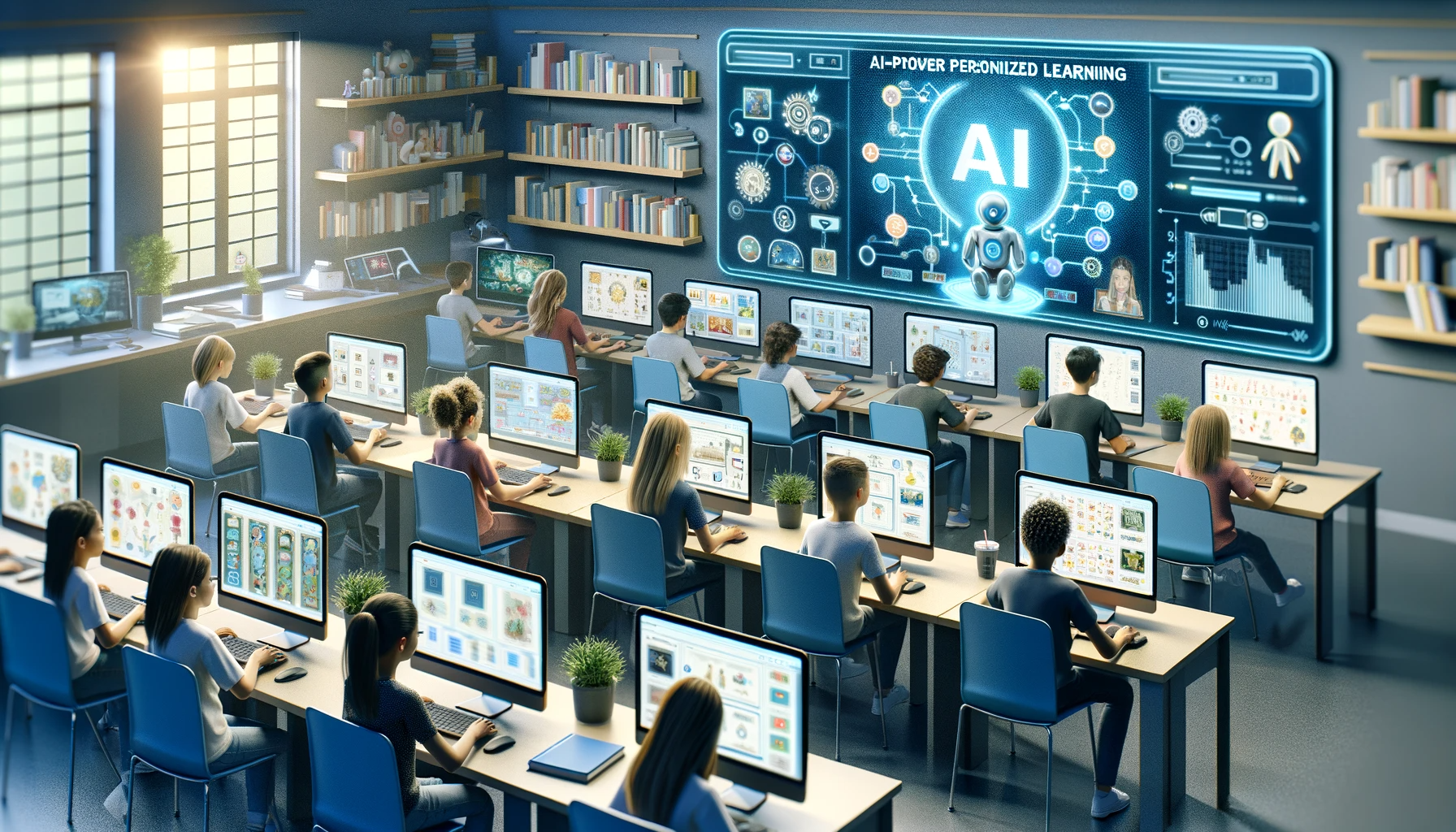Online education has rapidly evolved into a fundamental pillar of the modern educational landscape, especially accentuated by the digital revolution and recent global shifts towards remote learning. This modality of education, transcending traditional classroom boundaries, offers flexibility and accessibility, catering to a global audience. However, despite its growing popularity and inherent advantages, online education faces significant challenges, chiefly in personalization and student engagement. Traditional e-learning platforms often provide a one-size-fits-all approach, which can lead to disengagement and a lack of tailored learning experiences for individual students.
The advent of Artificial Intelligence (AI) presents a promising solution to these challenges. AI’s potential to revolutionize online education lies in its ability to offer customization and enhanced engagement, adapting to the unique needs and learning styles of each student. This article aims to examine the role of AI in transforming the landscape of online education. We will explore how AI-driven technologies are reshaping digital learning platforms, making them more personalized, interactive, and effective.
The Evolution of Online Education
The history of online education is a tale of technological evolution and educational innovation. From its inception in the form of correspondence courses to the latest digital learning platforms, online education has continually adapted to meet the changing needs of learners and educators. The recent surge in demand for online learning solutions reflects a significant shift in educational paradigms, influenced by technological advancements and a globalized world.
Traditional online education systems, while groundbreaking in their time, often grappled with issues such as limited interaction, rigid course structures, and a lack of personalized learning paths. These challenges have prompted a reevaluation of digital learning strategies and methodologies, paving the way for more dynamic and responsive educational platforms.

Understanding AI in Education
Artificial Intelligence, at its core, involves the creation of intelligent machines that can simulate human learning and problem-solving capabilities. In the context of education, AI encompasses technologies like machine learning, where algorithms learn from data and improve over time, and natural language processing, which enables machines to understand and interact using human language.
The transformative potential of AI in education lies in its ability to create more responsive and adaptive learning environments. Currently, AI is being employed in digital learning platforms to analyze learning patterns, tailor content to individual preferences, and provide intelligent tutoring systems. These applications mark a significant departure from traditional online education methods, offering a more personalized and engaging learning experience.
Personalizing Learning with AI
AI’s capacity to personalize learning experiences is one of its most significant contributions to online education. By analyzing data on student performance, learning habits, and preferences, AI can customize content to suit individual learning styles and paces. This personalization extends to adaptive learning paths, where course materials and assessments are tailored to the learner’s current level of understanding and interest.
Real-world examples of AI-driven personalization in online learning platforms are increasingly common. Case studies from various educational institutions and e-learning providers illustrate the success of AI in creating more individualized and effective learning experiences.
Enhancing Student Engagement through AI
Engagement is critical to the success of online education, and AI tools are playing a pivotal role in enhancing this aspect. AI applications in digital learning include the creation of interactive content, the incorporation of gamification elements, and the provision of real-time feedback to students. These AI-driven features make learning more engaging and interactive, resembling a personalized tutoring experience rather than a passive content consumption process.
Examples of AI technologies that have significantly improved user experience and engagement in online courses demonstrate the effectiveness of AI in maintaining student interest and motivation.
AI’s Impact on Learning Outcomes and Accessibility
The impact of AI on educational outcomes and learning effectiveness is a key area of investigation. Studies have shown that AI-enhanced learning platforms can lead to improved comprehension, retention, and application of knowledge. Furthermore, AI plays a crucial role in making online education more accessible to diverse learners, including those with disabilities, by providing adaptive learning technologies and accessible content.
The potential of AI to bridge educational gaps and promote inclusivity is significant, offering opportunities for learners who might otherwise have limited access to quality education.
Challenges and Ethical Considerations
Integrating AI into online education is not without its challenges and ethical considerations. Technical limitations, high implementation costs, and the need for continuous data inputs are some of the practical challenges faced. Ethical issues such as data privacy, algorithmic bias, and the digital divide also need to be addressed to ensure equitable and fair access to AI-enhanced education.
The balance between AI assistance and human interaction in learning is another critical consideration, as the personal touch and expertise of human educators remain irreplaceable.

Conclusion
In conclusion, AI holds tremendous potential in making online learning more effective and personalized. Its ability to tailor educational content, engage students actively, and provide accessible learning experiences is reshaping the landscape of digital education. As AI technologies continue to evolve, their role in online education is poised to grow, offering exciting prospects for the future of learning.
While challenges and ethical considerations need careful navigation, the benefits of AI in enhancing online education are clear. The future of AI in the educational sector appears bright, with its capabilities continuously expanding to shape and improve learning experiences for students worldwide.
